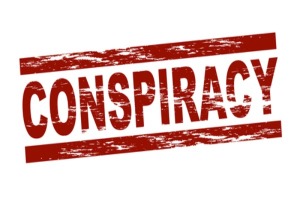What exactly do we mean by the phrase “conspiracy theory”? The problem is vexing enough in the academic literature, where scholars have made countless attempts to formulate a firm definition, none of which has managed to push its rival definitions off the stage. In everyday usage, the term is even more slippery: Its meaning constantly stretches and narrows, particularly when it is used as a pejorative. What follows is more impressionistic than systematic—not a complete study of the way the words “conspiracy theory” are used, but some observations about the way it bends to include or not include certain stories, and a hypothesis about why that might be so.
Let’s begin with the great vaccine debate of February 2015. That month New Jersey Governor Chris Christie, Kentucky Senator Rand Paul, and White House Press Secretary Josh Earnest all suggested, to one degree or another, that when it comes to childhood vaccines, public health should be balanced with parental choice. Christie, who we’ll focus on here, called vaccinations “an important part of being sure we protect” children’s health, but added that “parents need to have some measure of choice in things as well.”
Christie’s opponents immediately started digging for anything else he might have said on the subject. They found he had a history of courting voters who believe there might be a causal link between vaccines and autism. In 2009, for example, he put his signature on a letter that said:

